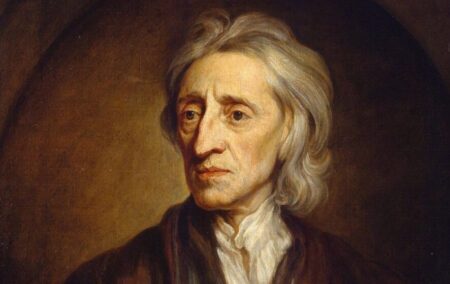Private property ownership philosophies across the world are based on the idea of natural law and the balance between freedom and social control.
The aim is to uphold individual autonomy, and avoid placing the individual at the mercy of collective gain. Unlike the idea that collective gain is justified as the legitimate expression of popular will, private property ownership advances morality in a democratic system by upholding liberty, the preservation of human life, as a defence against political despotism.
Liberty is essential in limiting the exercise of authority over the lives of individuals, in preserving cycle of self-preservation and happiness, and in balancing individual independence and social control. In a democratic system, private property ownership is more morally sound than state ownership of land, as it inherently limits the scope of authority over the individual.
Central to this is the representative nature of democratic governments, constitutional thresholds and the protection of courts, which function as a mechanism to protect the political liberties of the individual and a safeguard against state tyranny.
From a deontological perspective – that actions can be judged right or wrong in themselves, not by their consequences – natural law underpins the rights of individuals.
Universal social contract
Even by utilitarian standards, what is best for society is the universal social contract known as Human Rights. These rights, regardless of their source, are everything good about our world. They will enable a morally sustainable world, one in which democratic governments must morally justify decisions, regardless of the collective mandate given to them by one or another group of politically active participants.
John Stuart Mill coined the ‘will of the people’ fallacy. Mill holds that a majority simply indicates the most numerous or most active part of the people who have succeeded in making themselves the majority and may seek to oppress part of their number.
Although that majority vote establishes a mandate, arguably it gives rise to more dangerous abuse far more formidable than any kind of political oppression. Mill suggests that this abusive power is the most dangerous because it leaves fewer means of escape. This is known as social tyranny. Private property ownership establishes the inalienable right of the individual to build a life free from political and social dissent. Therefore, regarding natural law or even the utilitarian doctrine of human rights as the single most important and non-negotiable aspect of human life mitigates social tyranny.
John Locke said: ‘Property preserves those who pick the fruit from it.’ Without private property ownership, any benefit from that land is useless and degrades the preservation of human life. Self-preservation and happiness are undeniably a consequence of our human condition to survive and live a fulfilling life.
According to Locke, the result of labour is the fruit, whether in the form of a wage or salary. The said fruit provides something material which humanity uses to preserve itself, whether farm workers, investment analysts or political pundits. Pleasure in life is derived from a sense of purpose which produces happiness. If the government were to expropriate that wage or salary, individuals and communities would bear a large social and developmental cost.
Life-sustaining activity
Locke holds that because labour is the basic method of how humanity sustains itself, without it, every life-sustaining activity is removed. Therefore expropriation without compensation is a danger to every life-sustaining activity. Communities should have wealth to store, protect and grow. However, if the store of wealth, which is property, is threatened by social tyranny, the day will arrive when all wealth will be under threat by the same political oppression.
Protection against political despotism necessitates a balance between individual independence and social control. According to Mill, it is important to protect individuals from society’s tendency to impose not only social penalties, but ideas and practices. Cultural and religious normative standards inform public opinion. However, the prevailing public sentiment of progressive left-wing activists is informed by Marxist doctrine, which by implication informs political movements, like the ideology of nationalisation. This is dangerous in that there exists a peculiar public servility to political factions.
Mill suggests the only reason that power can be exercised forcefully over an individual is to prevent harm to others, but the fact that such power might be for the individual’s own good, either physical or moral, is not a sufficient warrant. In other words, to expropriate land without compensation is not a sufficient warrant even if it is to enlarge economic freedom.
Private property ownership philosophy morally justifies its existence from a deontological and utilitarian worldview. The Marxist perspective suggests that ownership by the state of the means of production increases equality. However, this idea cannot functionally operate in democratic systems because it doesn’t uphold liberty, the preservation of human life, and is not protection against political despotism.
To create thriving communities in democratic systems, private property ownership must remain a cornerstone we guard with our lives.
The views of the writer are not necessarily the views of the Daily Friend or the IRR
If you like what you have just read, subscribe to the Daily Friend

